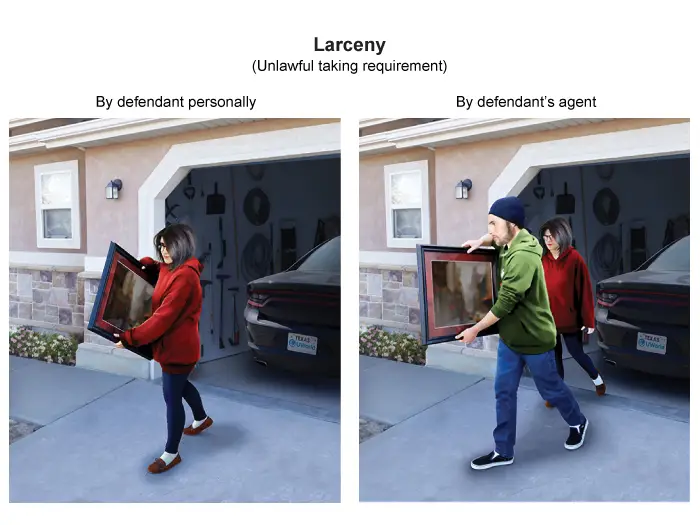The Connecticut Bar Exam
Structure, Topics, Dates, Cost, Scores, and Eligibility
The Connecticut Bar Exam implemented the Uniform Bar Examination (UBE®) format starting in February 2017. The UBE is composed of three parts: the Multistate Bar Examination (MBE®), the Multistate Performance Test (MPT®), and the Multistate Essay Examination (MEE®).
Individuals considering practicing law in another state can benefit from increased score portability among the 41 participating UBE jurisdictions. This article offers comprehensive information on CT Bar Exam results, dates, deadlines, fees, applications, and more.
Connecticut Bar Exam Structure
The Uniform Bar Examination is administered over two days and consists of a writing section (MPT/MEE) and a multiple-choice section (MBE).
- Day 1: MPT/MEE
- Day 2: MBE
MBE
The MBE is weighted at 50% of the UBE, making it the most heavily weighted section of the Connecticut Bar Exam. Examinees will have two 3-hour sessions to answer 200 multiple-choice questions.
MEE
The MEE is weighted at 30% of the UBE and is administered on day one. Examinees have 3 hours to answer six 30-minute essay questions.
MPT
The MPT is weighted at 20% of the UBE and is administered on day one. Examinees are provided with faux case files imitating realistic scenarios and a folder with various legal documents, which they must use to respond to assignments.
Connecticut Bar Exam Dates, Requirements, and Scheduling
Aside from saving you stress, preparing your application for the Connecticut Bar Exam and submitting it before the first filing deadline will save you $100. See below for important deadlines, dates, and fees.
Exam dates
Examinees can begin filing their applications for the Connecticut Bar Exam from October 1, 2023, for the February 2024 exam, and March 1, 2024, for the July 2024 exam. There is an $800 application filing fee and an additional $100 fee for late filing.
| Filing Periods | February 27-28, 2024 Exam | July 30-31, 2024 Exam |
|---|---|---|
| Application Opens | October 1, 2023 | March 1, 2024 |
| First Filing Deadline | October 31, 2023 | March 31, 2024 |
| Final Filing Deadline | November 30, 2023 | April 30, 2024 |
Requirements
To sit for the Connecticut Bar Exam, you must have a Juris Doctorate Degree (JD) from a law school approved by the American Bar Association (ABA) or by the Connecticut Bar Examining Committee (CBEC) in accordance with Article II-1(B).
After you pass the bar, you must undergo a character and fitness screening to prove that you are worthy of the trust and confidence of your clients. Determinations of good moral character and fitness are made at the time of admission.
Forms required to prove your education, character, and fitness can be found here.
Scheduling
To schedule your appointment to take the Connecticut Bar Exam, you'll first need to download the free Adobe Acrobat® Reader 8 to fill out and save forms. Print your application on 8 ½" x 11" paper and mail it with the required attachments and fees. There is no electronic filing. Make sure that all questions are answered fully unless it is clearly stated that they can be skipped.

Connecticut Bar Exam Cost and Fees
Filing your Connecticut Bar Exam application after the first filing deadline will cost you an extra $100. Costs and fees for transferring scores, foreign applicants, and more are tabulated below.
| Application Fees | |||
| Application to Take the Bar Exam | $800 | ||
| Other Application Fees | |||
| Bar Exam Application Late Filing | $900 | ||
| UBE Score Transfer | $750 | ||
| Application for Admission without Examination | $1800 | ||
| Petition for Determination on Foreign Education | $500 | ||
| Application Fee for Foreign Legal Consultant | $500 | ||
| Miscellaneous Fees | |||
| Copy of Filed Application | $15 | ||
| Transmittal of MBE score | $25 | ||
| Replacement of Exam Scores and Info | $15 | ||
| Certified Copy of Previously Filed Application | $15 | ||
| Investigation under Sec. 2-8(8) | $50 | ||
| Laptop Fee | $125 | ||
Payment policies
Fees are non-refundable and must be made out to the "Connecticut Bar Examining Committee". Only certified checks or money orders are accepted. They must be sent to:
| Direct Mail | |
| Connecticut Bar Examining Committee 100 Washington Street, 1st Floor, Hartford, CT 06106-4411 | [email protected] |
Re-takers who have a fee credit from a previous Connecticut Bar Exam must email the CBEC Administrative Office before they submit their online application.
Cost-saving options
An $800 application fee is no small expense. Fortunately, there are ways to save money on the CT Bar Exam. The Connecticut Bar Association (CBA) runs the CBA Future of the Legal Profession Scholarship Program (FLPSP), which seeks to increase diversity in the legal community.
Participants receive financial assistance for LSAT prep courses and invitations to events and programs that will aid them as they pursue their legal education. They also receive mentoring and networking opportunities and help submitting law school and grant applications.
Here are the eligibility requirements:
- Recent graduate, junior or senior, of a Connecticut college or university.
- Plan on graduating from an accredited law school in Connecticut.
- Preference is given to members of the following communities: Women, LGBTQ+, Religious minority, Indigenous group, Asian, Black/African-American, Native Hawaiian/Pacific Islander, Hispanic/Latinx, or individuals with disabilities.
Connecticut Bar Exam Subjects and Topics
The Connecticut Bar Exam assesses an individual's analytical and reasoning skills, as well as their grasp of fundamental legal principles. Additionally, as Connecticut has adopted the Uniform Bar Examination (UBE) program, a passing score on the exam signifies that the examinee is qualified and capable of practicing law in the 40 other participating states.
MEE: Testable subjects
The MEE consists of six 30-minute essay questions. Each question involves one or more of the subjects listed below. Some subjects may be paired together. Other subjects could be omitted. While it's impossible to know which subjects the National Conference of Bar Examiners (NCBE®) will choose on any given exam version, some have been tested more frequently than others historically.
For example, Civil Procedure has appeared on nearly every MEE in the past decade, while Criminal Law has only appeared several times. However, subjects that occur less frequently on their own may be paired with others. Our MEE Study Guide and Prep Tips provides all the details you need to focus your studies on what's essential and use your time efficiently.
- Business Associations
- Civil Procedure
- Conflict of Laws
- Constitutional Law
- Contracts
- Criminal Law and Procedure
- Evidence
- Family Law
- Real Property
- Secured Transactions
- Torts
- Trusts and Estates
Check out our MEE Subject Matter Outline for detailed explanations of MEE subjects and sub-topics.

Themis courses include unlimited essays for practice, simulation, and grading.
MBE: Testable subjects
The MBE is administered in two three-hour sessions on Wednesday (Day 2) of the bar exam. It is scored on a 200-point scale and presents candidates with 200 multiple-choice questions spanning the following MBE subjects, broken down into 25 questions per subject:
- Constitutional Law
- Contracts
- Criminal Law/Procedure
- Evidence
- Civil Procedure
- Real Property
- Torts
MPT: Testable items
The MPT consists of closed-universe practical questions with instructions, factual data, cases, statutes, and other reference material supplied by examiners. Candidates will answer two cases presenting simulated real-life scenarios in the fictional jurisdiction of "Franklin." These tasks are designed so examinees can demonstrate their lawyering skills using only materials provided by the bar examiners. Each case is assessed on a 6-point scale, with a 6 being the highest possible score and a 0 being the lowest possible score.
Connecticut Bar Exam Scoring/Grading
To be admitted to the Connecticut Bar, applicants must pass the UBE with a minimum scaled score of 266 out of 400. Exam weightage is divided between the three sections:
MEE and MPT scores are combined and scaled out of 200. Therefore, the writing section (MEE/MPT) and the multiple-choice section (MBE) each comprise 50% of your total UBE scaled score (or 200 points each). If you do poorly on one exam section, you can make up for it on the other, as long as these scores combine to a sum of 266 or more.
Note that your raw score is not the same as your scaled score. For example, getting 133 of 200 MBE questions correct does not necessarily mean you've earned 133 scaled points. Scaled scoring is employed to ensure fairness across exam versions. This scoring model is true for all three sections of the bar exam.
For example, July's exam may be more difficult than February's. It would be unfair to allow someone to pass or fail based on the relative difficulty of their exam version. Therefore, examinees' raw scores are transformed into scaled scores through a statistical method called equating. Unfortunately, the NCBE does not release data on the calculations it uses to determine scaled scores.
Connecticut MPRE minimum passing score
The Multistate Professional Responsibility Examination (MPRE®) features 60 multiple-choice questions administered over two hours. You must pass the MPRE with a minimum score of 80 before being admitted to the Connecticut bar. Check out our article, About the MPRE, to learn more.
Connecticut Bar Exam Results and Pass Rates
As is typical with bar exams across the country, the Connecticut Bar Exam's repeater pass rate is markedly lower than the first-timer pass rate. This phenomenon is likely because many examinees who failed the first time haven't changed their study habits significantly.
|
Exam |
Overall |
First-Timer |
Repeater |
Results |
|---|---|---|---|---|
|
July 2023 |
56% |
67% |
16% |
September 29, 2023 |
|
Feb. 2023 |
35% |
57% |
24% |
April 21, 2023 |
Below are the annual pass rates for the CT Bar Exam since 2017 divided into first-time examinees and repeaters:
| Exam | First Timers | Repeaters | Overall | |||
|---|---|---|---|---|---|---|
| Year | No Of Candidates | Pass Rate | No. Of Candidates | Pass Rate | No. Of Candidates | Pass Rate |
| 2022 | 333 | 69% | 129 | 29% | 462 | 58% |
| 2021 | 367 | 70% | 196 | 26% | 563 | 55% |
| 2020 | 381 | 72% | 156 | 26% | 537 | 59% |
| 2019 | 278 | 69% | 183 | 30% | 461 | 53% |
| 2018 | 335 | 63% | 187 | 22% | 522 | 49% |
| 2017 | 402 | 76% | 142 | 30% | 544 | 64% |
Connecticut Bar exam results
In Connecticut, bar exam results are typically released and posted on the State of Connecticut Judicial Branch website about 2 months following the administration of the exam.
Connecticut Bar Exam Reciprocity
Connecticut offers reciprocity with the jurisdictions listed in the table below. Applicants must be licensed in at least one of these jurisdictions, and the applicant must have been actively practicing law for at least 5 of the 10 years leading up to their submission. Here is a checklist for admission without examination.
| Alabama | Michigan | Oregon |
| Alaska | Minnesota | Pennsylvania |
| Arkansas | Mississippi | South Dakota |
| Colorado | Missouri | Tennessee |
| District of Columbia | Montana | Texas |
| Georgia | Nebraska | Utah |
| Illinois | New Hampshire | Vermont |
| Indiana | New Jersey | Virgin Islands, US |
| Iowa | New Mexico | Virginia |
| Kansas | New York | Washington |
| Kentucky | North Carolina | West Virginia |
| Maine | North Dakota | Wisconsin |
| Maryland | Ohio | Wyoming |
| Massachusetts | Oklahoma |
Applicants must meet the same requirements as those applying for the CT Bar through examination: Obtain a JD from an ABA or Committee approved law school, be deemed of good moral character and fit to practice law, and earn an 80 or higher on the MPRE. If an applicant has failed the CT Bar Exam within the last five years, they cannot apply for admission without examination.
Connecticut Bar Exam for Foreigners
Foreign applicants may qualify for admission to take the CT Bar Exam if they have graduated with a JD from an ABA or Committee approved law school and have been deemed of good moral character and fit to practice law. Alternatively, the applicant must meet all of the following criteria:
- Have successfully completed academic requirements to legally practice law in their country
- Attended a program that met ABA or Committee standards in both duration and quality
- Obtain an LL.M. degree at an ABA or Committee approved law school in the US
What Makes the Connecticut Bar Exam Unique?
Connecticut does not have any state-specific pre-legal educational requirements. However, 12 hours of post-admission continuing legal education (CLE) are required to hold onto your license.
Final Takeaways
Whether you are taking the UBE for the first time or you are a repeater, the best way to be among those who pass the Connecticut Bar Exam is to study with questions and practice exams that imitate the actual bar exam.
If practice feels like the real thing, the real thing will feel like practice. The Themis + UWorld full bar review bundle offers 4000+ MBE practice questions. Each question has been curated by our premier team of legal experts or is licensed by the NCBE.
You'll gain access to 100+ MEE practice essays and 22 MPT practice questions from past bar exams. In addition, our platform offers customizable flashcards, performance tracking, a QBank filled with detailed illustrations, readings paired with bite-sized video lectures, and thorough explanations for each question.
Contact details of the Connecticut State Bar
If you wish to contact the Connecticut State Bar Admissions office with inquiries regarding the Connecticut Bar Exam, please see the details below.
|
Medium |
Info |
|---|---|
|
Phone Number |
|
|
Hearing/Speech Impaired |
1 (800) 842-9710 |
|
|
|
|
Mailing Address |
100 Washington Street, |
